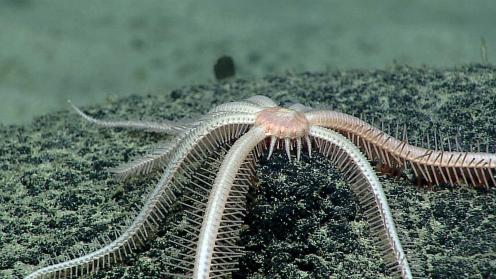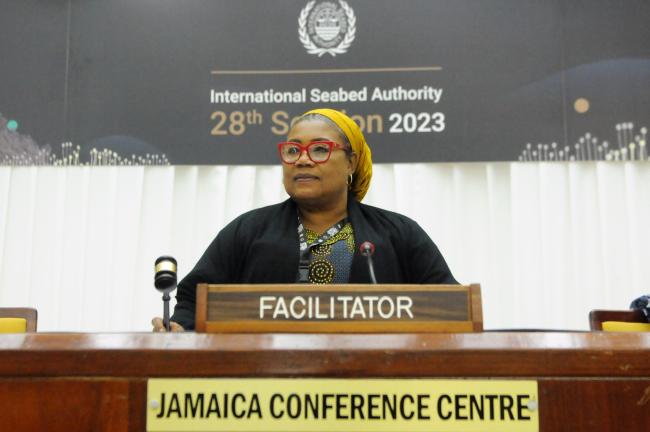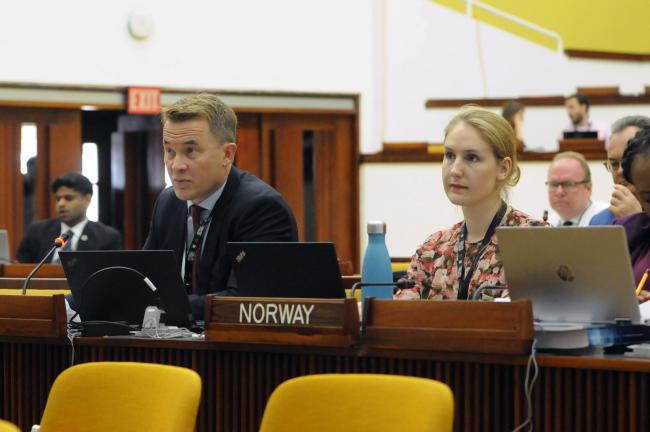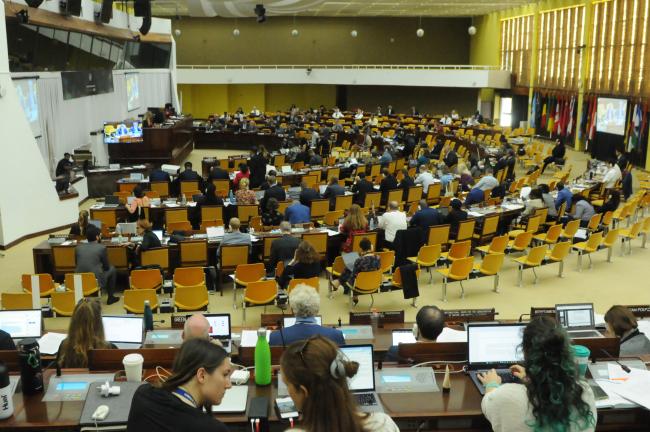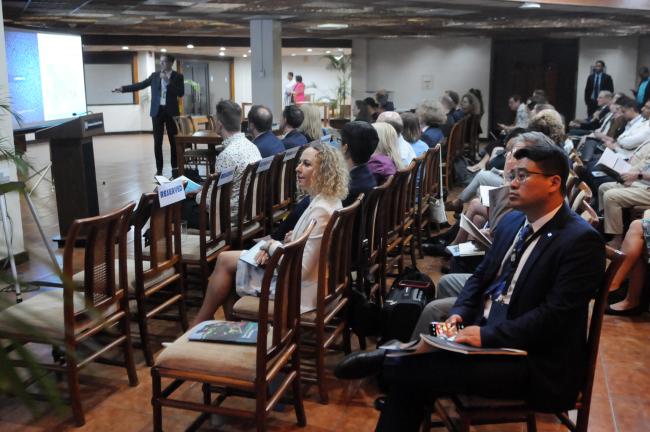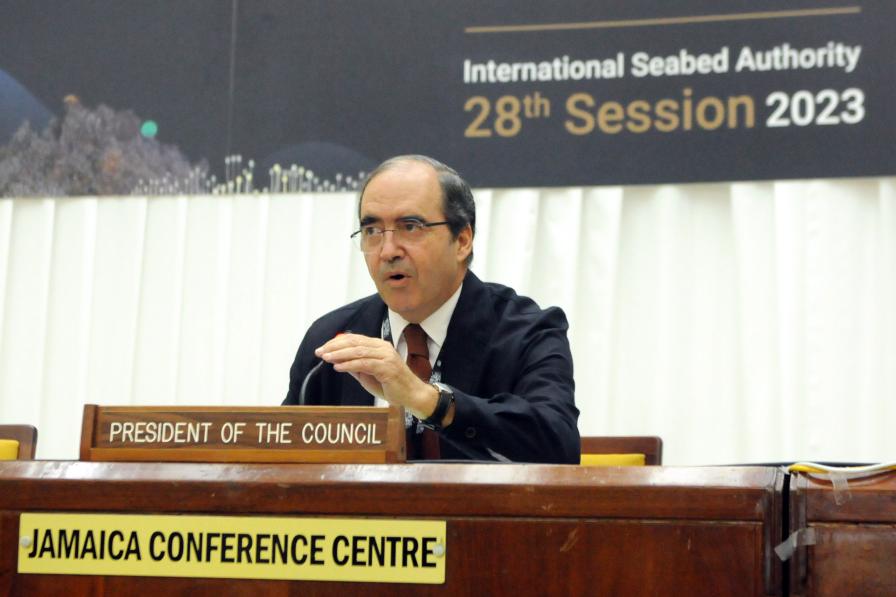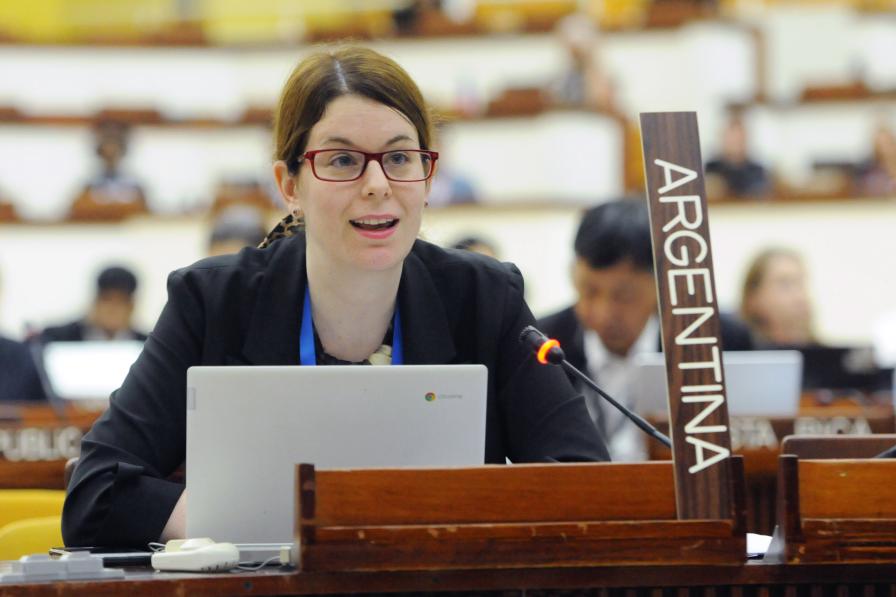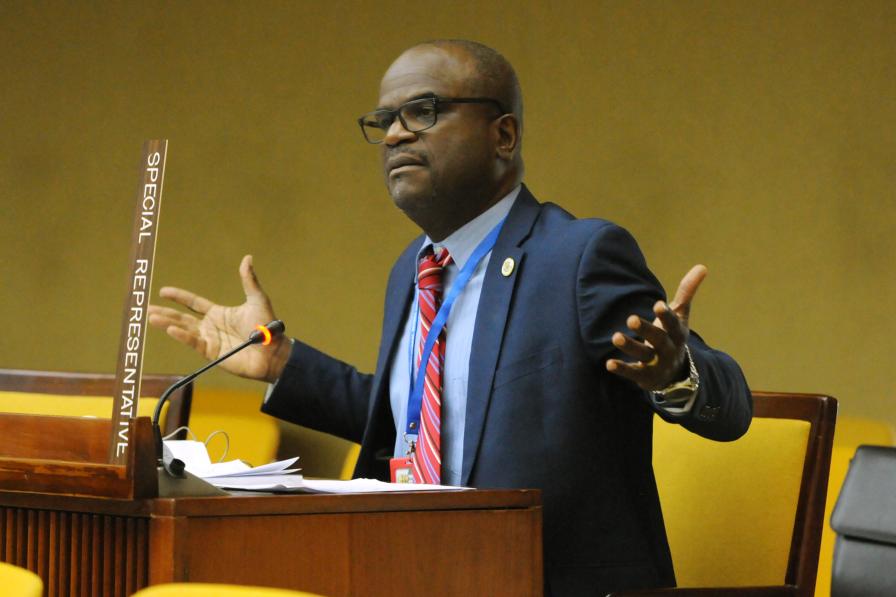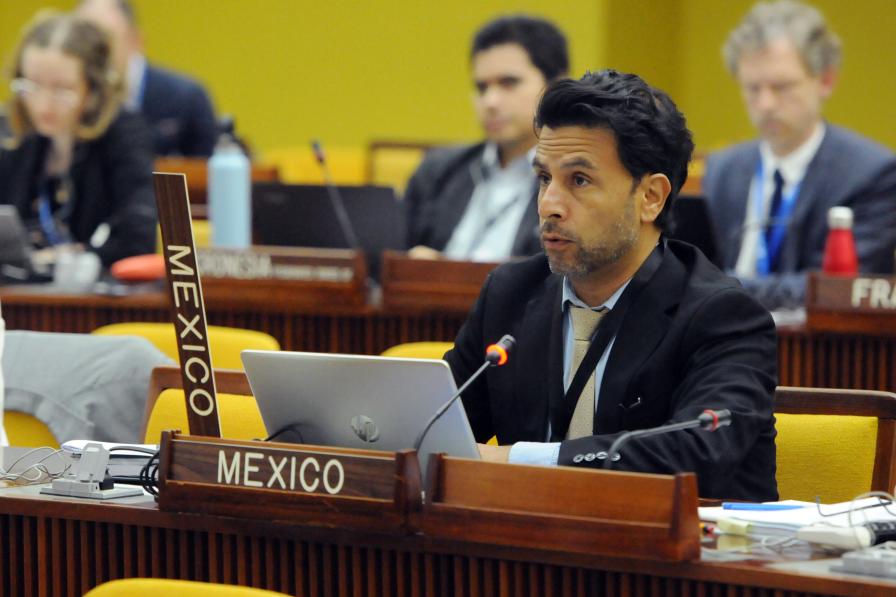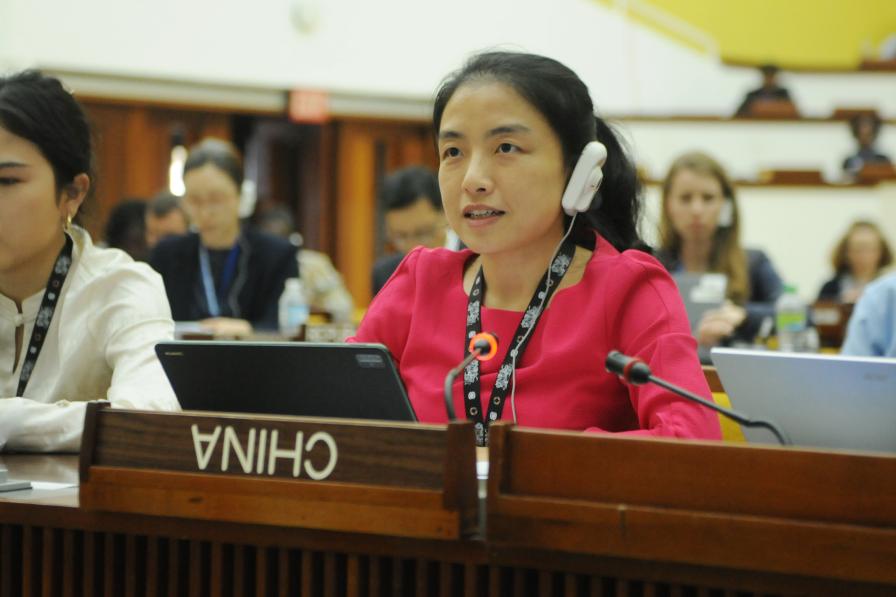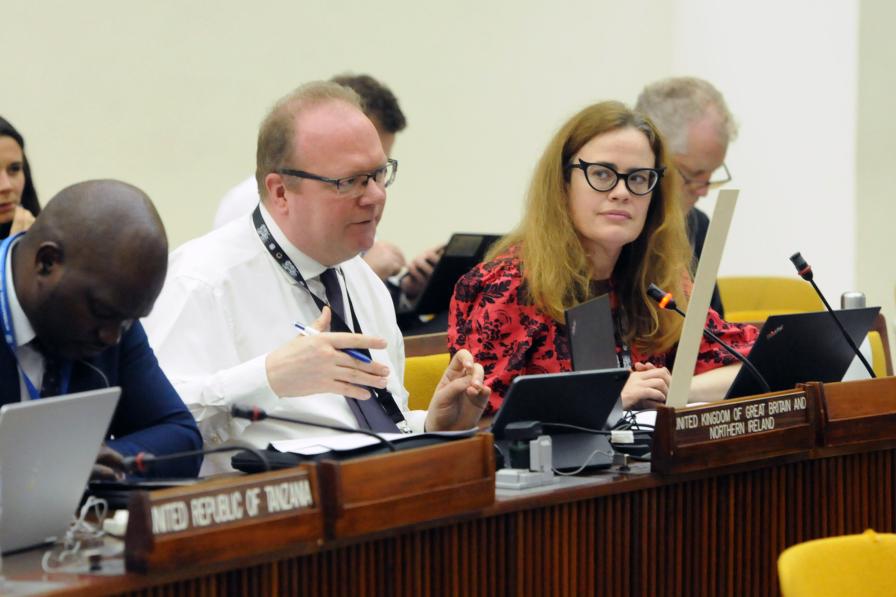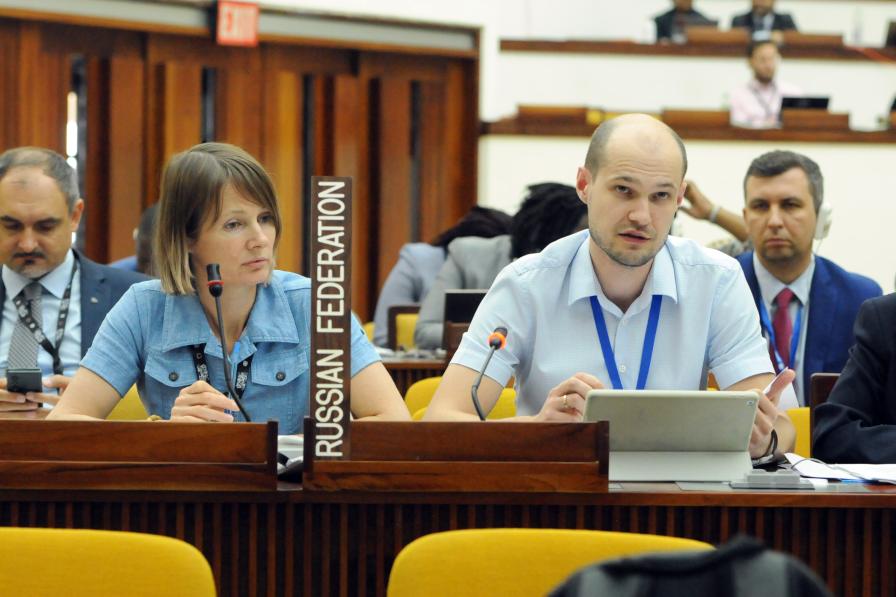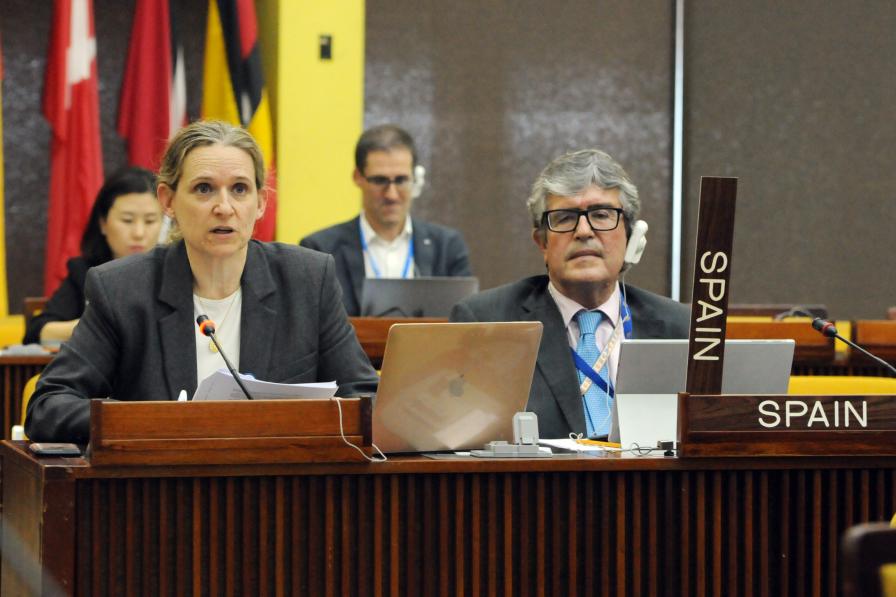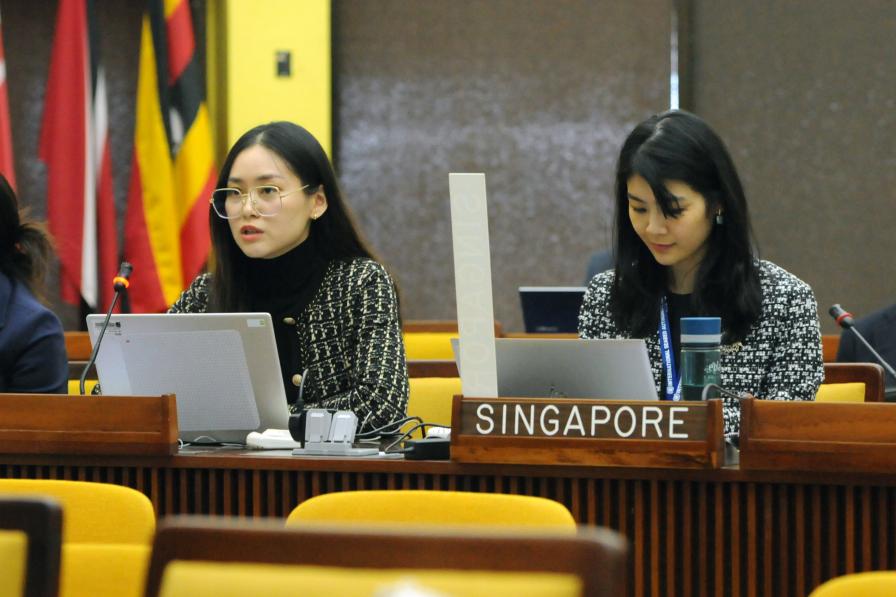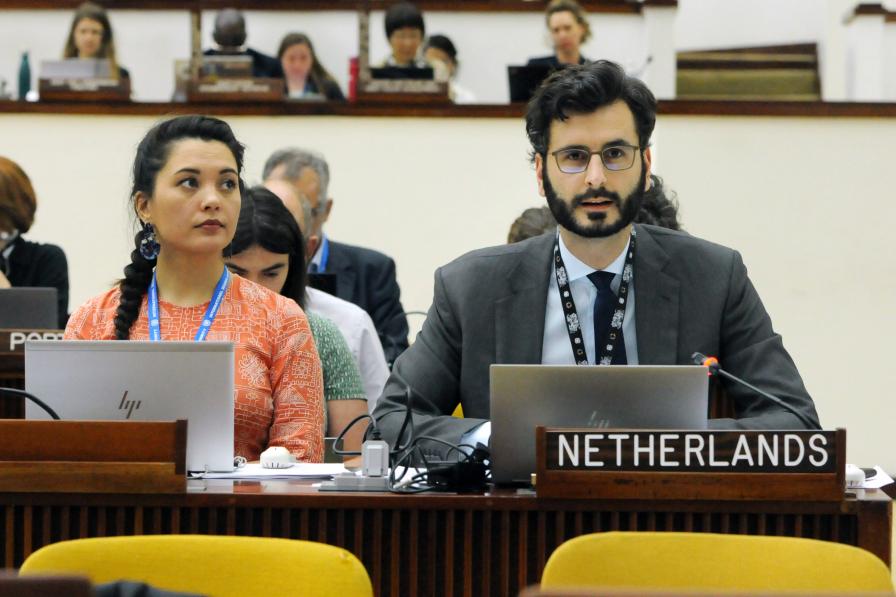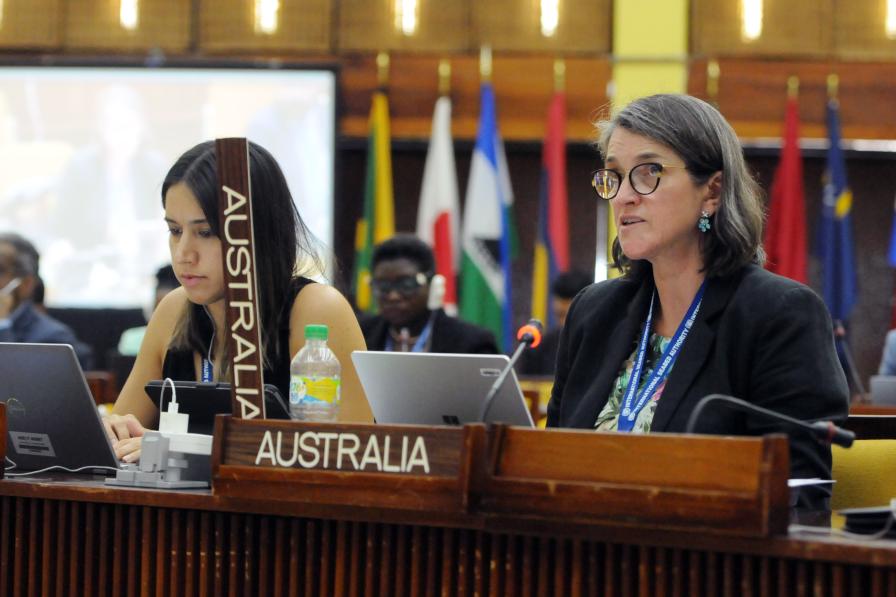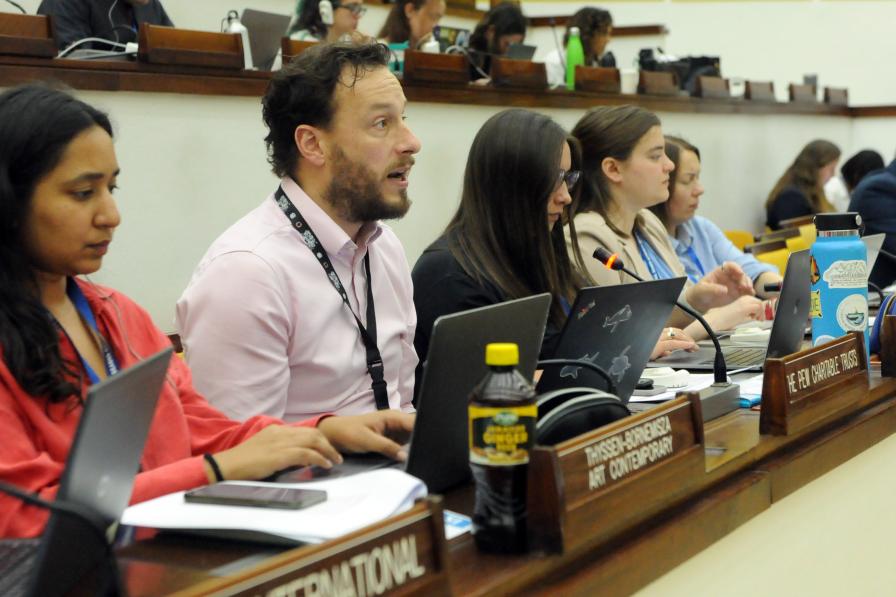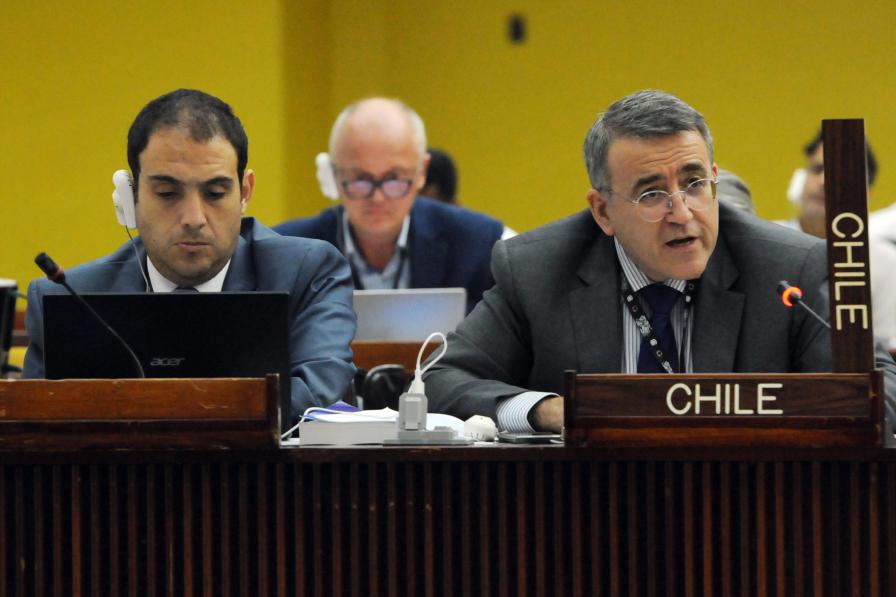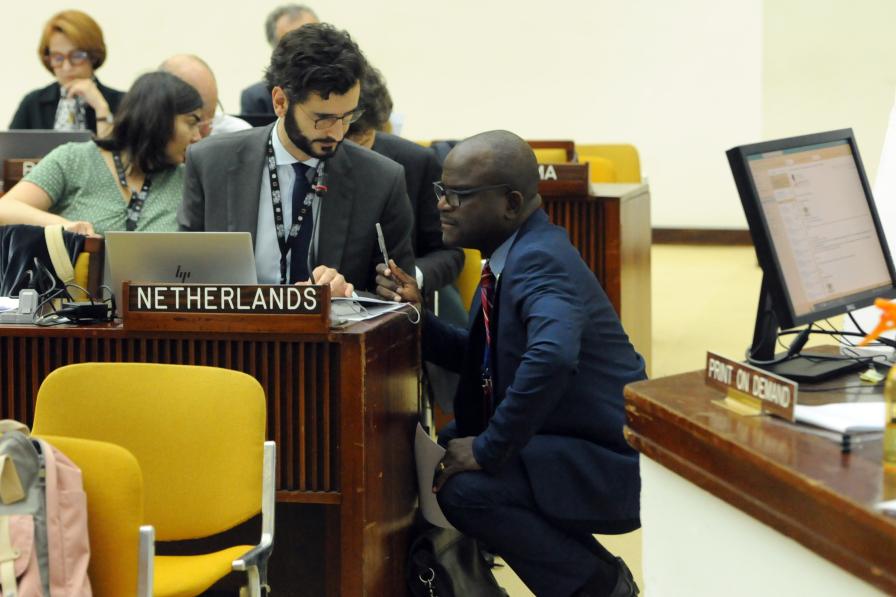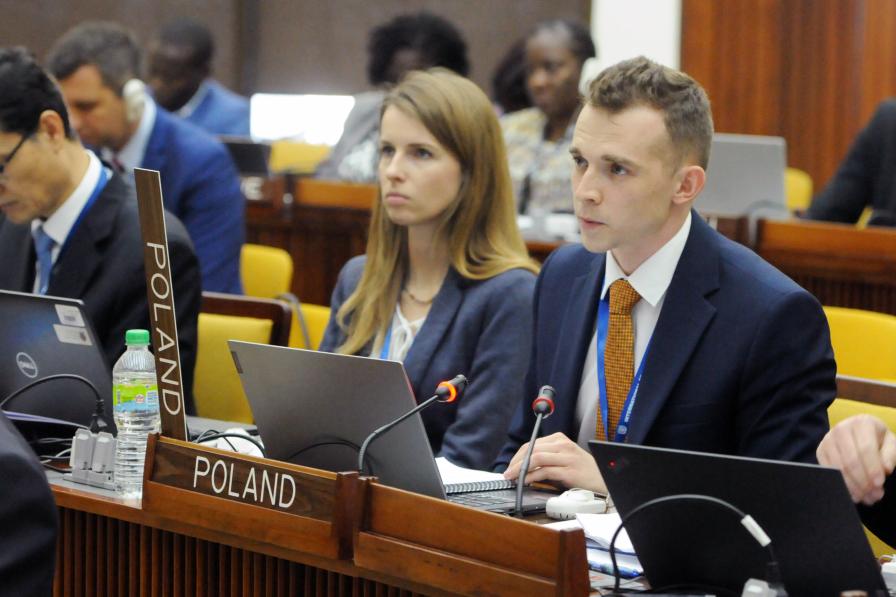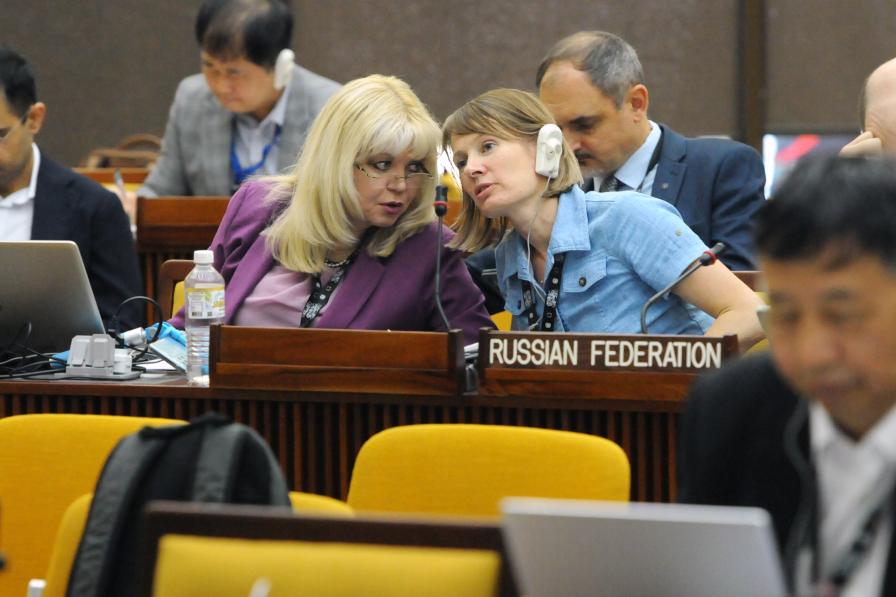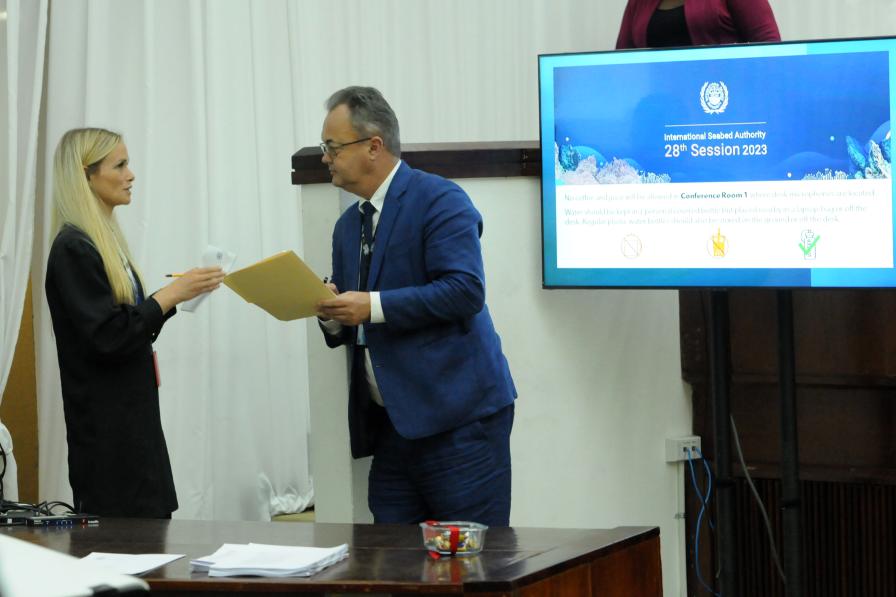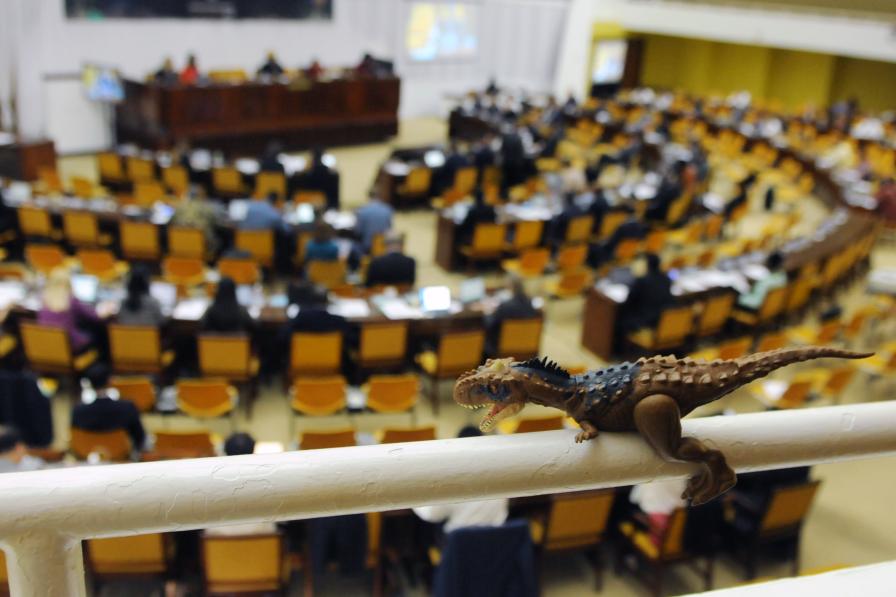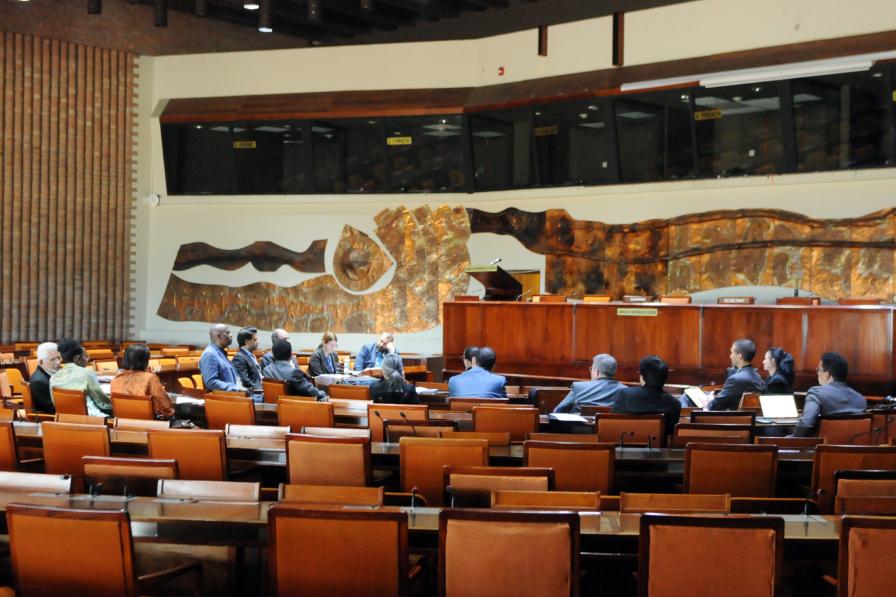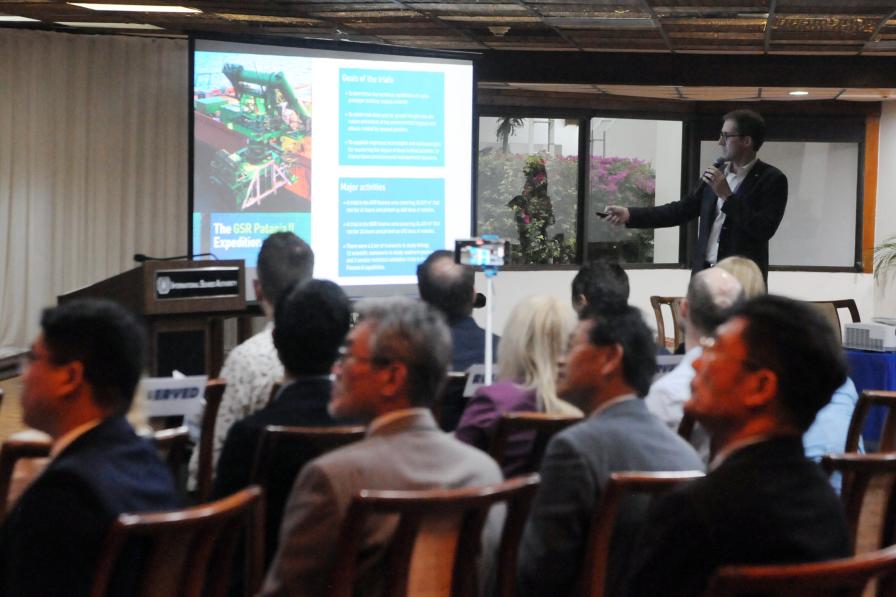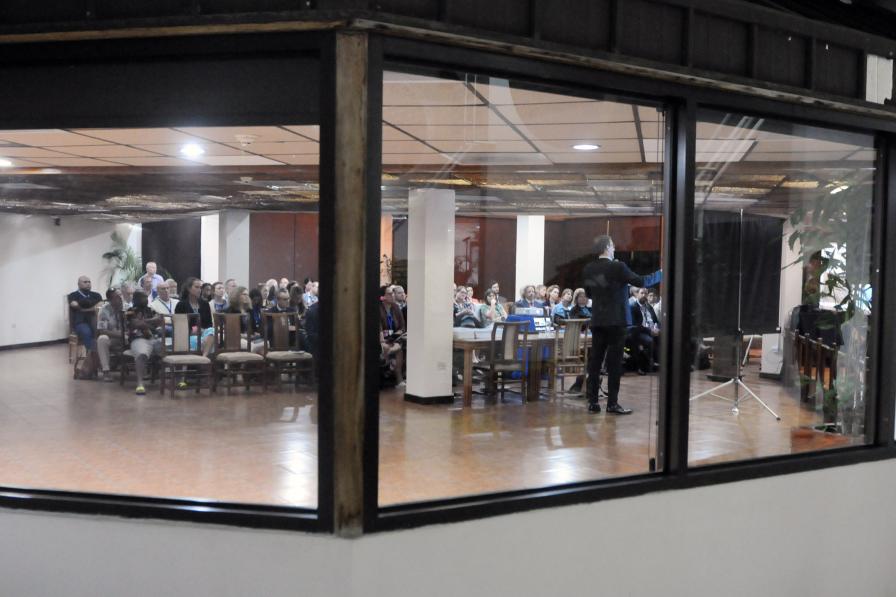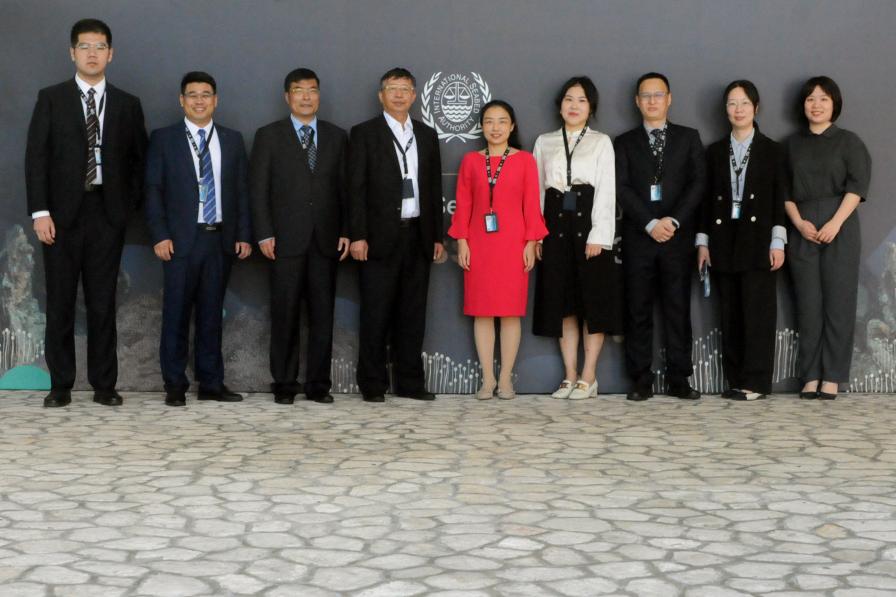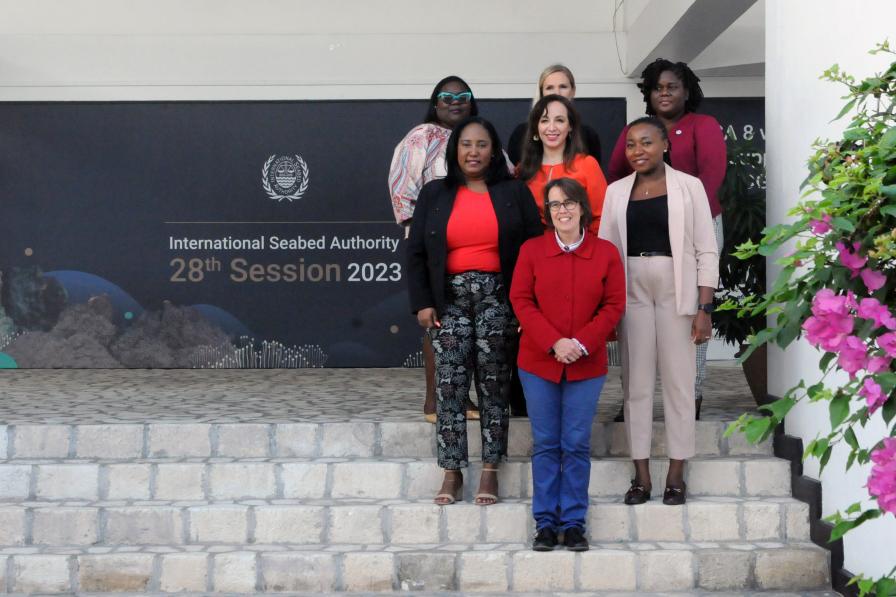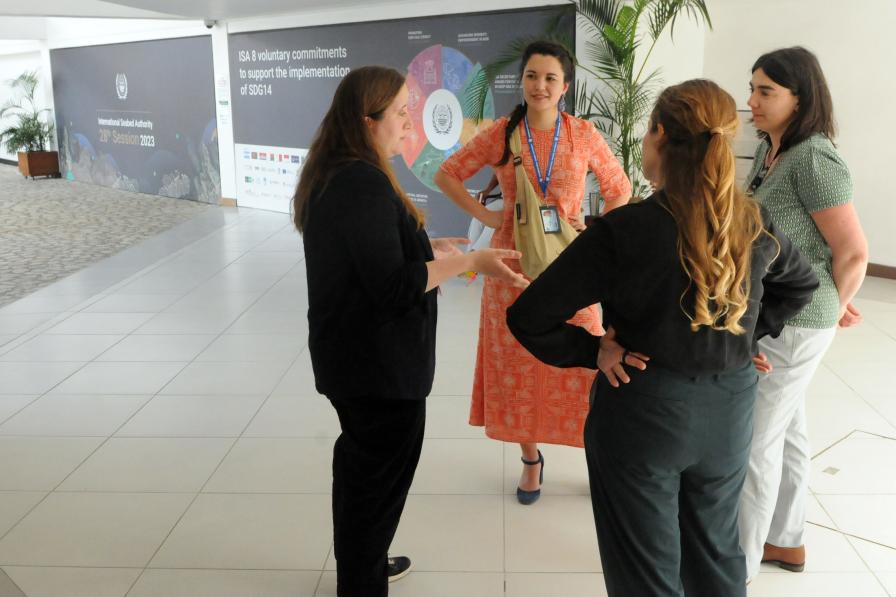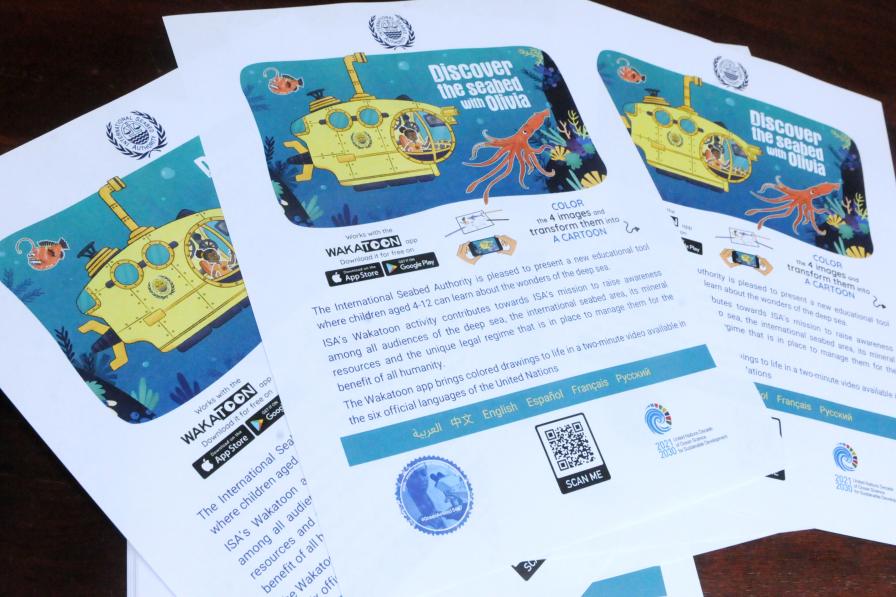The ISA continued its work on the draft exploitation regulations for deep sea mining, focusing on issues of inspection, compliance, and enforcement. President Juan José González Mijares (Mexico) thanked Facilitator Taga (Fiji) for her pragmatic approach to streamlining the part of the draft regulations related to the protection and preservation of the marine environment, and introduced Maureen Tamuno, High Commissioner of Nigeria to Jamaica, who was facilitating the Informal Working Group on inspection, compliance, and enforcement.
Facilitator Tamuno introduced the further revised text of part XI of the draft regulations (ISBA/28/7/IWG/ICE/CRP.1), as a basis for negotiations. She stressed the need to agree on the respective roles of the Secretariat, the Council, the Legal and Technical Commission (LTC) as well as the proposed inspectorate and compliance committee. She introduced guiding questions, including on: the need for an independent inspectorate and/or compliance committee; their establishment, staffing requirements, nominations processes, and administration; and relevant reporting requirements.
Three main conceptual models emerged during the discussion:
- Establishing an inspectorate, including an inspector general;
- Establishing a compliance committee; and
- Delegating the inspection, compliance, and enforcement functions to LTC.
A representative of a group of countries reported on the outcomes of intersessional work, noting the informal group developed a revised proposal, incorporating important elements from previously suggested models. He noted that any compliance mechanism must be in line with UN Convention on the Law of the Sea (UNCLOS) Articles 162 (powers and functions of the Council) and 165 (the LTC). He suggested the establishment of a seabed mining inspectorate as an independent organ, accompanied by an inspector general, and a roster of inspectorates with the Council exercising relevant control.
Two groups of countries drew attention to their distinct prior submissions, based on the establishment of a compliance committee with an oversight function, stressing the need for an independent and robust institutional arrangement, ensuring impartiality. Another delegation underscored that the LTC should assume relevant responsibilities according to UNCLOS Article 165, reducing redundancies and achieving cost efficiency by optimizing the functions of existing organs.
Many delegations showed flexibility, highlighting the importance of focusing first on the functions to be performed rather than the mechanism's architecture and name. Others underscored the need to first agree on the conceptual nature of the compliance mechanism. Many emphasized that all decision making should be independent from inappropriate influence, including political influence, following an evidence-based, consistent approach. Some suggested combining the inspectorate and compliance committee options, where the inspectorate would detect infringements and take responsive actions, and the compliance committee would assume a role as a magistrate body.
Views converged on: the need for inclusiveness in the appointment of qualified inspectors; functional independence; transparency; avoidance of duplication in roles and responsibilities; avoidance of conflict of interest; and consistency with provisions of UNCLOS and the 1994 Implementing Agreement.
The need to consider that the contractors' rights and obligations also apply to the Enterprise once established, was stressed as well as the importance of ensuring that activities in the Area are carried out for the benefit of humankind as a whole.
Facilitator Tamuno invited interested delegations to develop diagrams on their preferred mechanism for further consideration on Friday, 24 March, and welcomed suggestions for intersessional work.
The working group then addressed the relevant draft regulations, as included in the further revised text.
Under the section on inspections, on general considerations, delegates focused on: a code of conduct for inspectors; jurisdictional issues; cases of urgent inspection without prior notification; geographical and gender balance in representation; and monitoring and surveillance of equipment.
On the appointment and supervision of inspectors, delegates agreed that the Council shall establish a roster of inspectors and that state parties may submit nominations of candidates regardless of their nationalities. Different views remain on other provisions.
On inspectors’ powers, discussion focused on a provision regarding the inspectors seizing documents or samples required for examination or analysis. Many supported the provision, but others suggested deletion. A regional group suggested exploring ways to preserve evidence without resorting to seizures.
On inspectors’ power to issue instructions, many suggested deleting reference to inspectors “anticipating” dangers to safety or harm to the marine environment for issuing an instruction. Opinions diverged on: whether “serious” harm to the marine environment should be the threshold for issuing an instruction; the inclusion of reference to underwater cultural heritage; and the inspector issuing an instruction requiring a suspension in some or all activities for a specific period upon written authorization by the Council.
Regarding the inspection report, delegates agreed on the addition of a regulation aimed at the preparation of an annual compliance report for each contractor. Delegates also exchanged views on who should prepare the reports, to whom they should be sent, and the respective timeframes.
On the complaints relating to inspections, several delegates and a regional group stressed that the Council should receive the complaint reports. On the whistle-blowing procedures, many delegates agreed on the relevance of establishing such a procedure. Other delegations asked for further clarification.
Under the section of monitoring on vessel notification, electronic monitoring, and data reporting, delegates addressed, among other issues: real-time data and position; electronic monitoring systems; best available environmental and archaeological techniques; underwater cultural heritage; links with the environmental management and monitoring plan; and environmental data collection.
On the section on enforcement and penalties, regarding compliance notice, suspension, and termination of exploitation contract, a delegate suggested that the entity selected within the institutional arrangements should be the one responsible for issuing a compliance notice, with the Council deciding on suspension or termination of a contract. Observers’ suggestions included: incentivizing avoidance of harm via higher penalties for more serious harm; allowing for observer representation concerning any part of the compliance notice along with contractor representation; clarifying the relationship between inspectors’ instructions and compliance notices; and a separate section on the grounds for termination.
In the evening, a side event hosted by Global Sea Mineral Resources NV focused on advancing scientific knowledge, sharing lessons learned from the Patania II Expedition.
Text written and edited by Asterios Tsioumanis, Ph.D., María Ovalle, and Pam Chasek, Ph.D.
All ENB photos are free to use with attribution. For the 1st Part of the 28th Annual Session of the ISA, please use: Photo by IISD/ENB | Diego Noguera
To receive free coverage of global environmental events delivered to your inbox, subscribe to the ENB Update newsletter.
